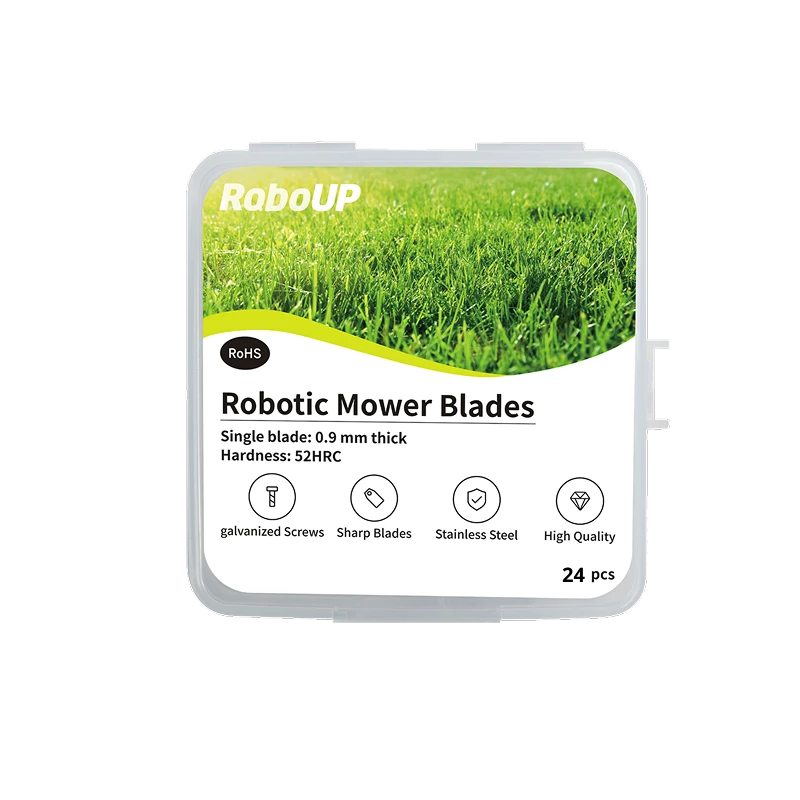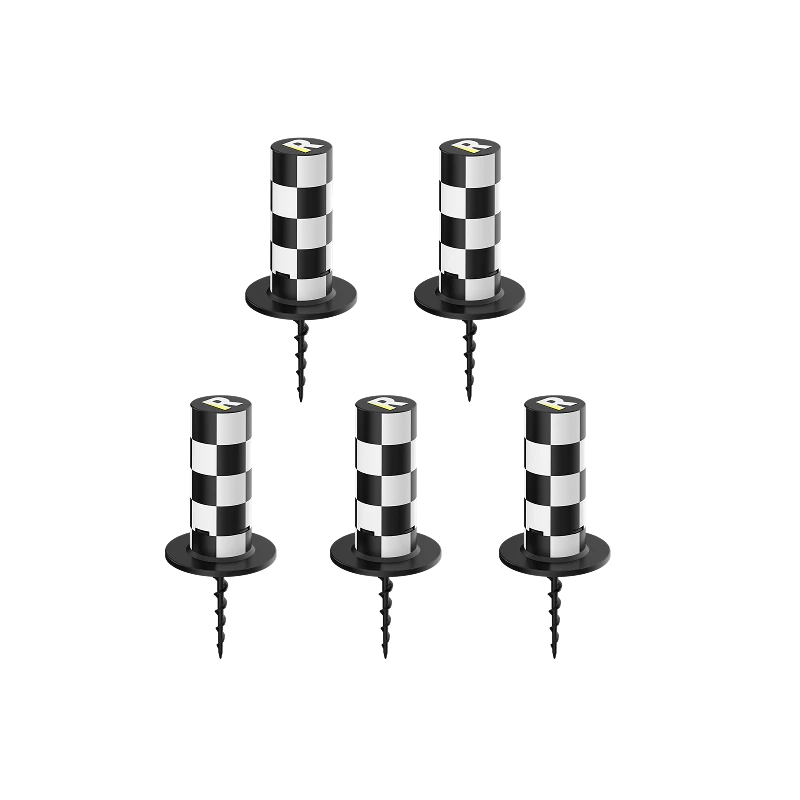Eco-Friendly Activities for Spring
RoboUP - 2024/03/14
With spring offering many opportunities for outdoor activities, it is the perfect time to make a positive impact to the environment by adopting eco-friendly habits into our daily lives. Making small yet significant changes at home is the first step towards sustainability. In this article, we'll explore six simple yet impactful ways to prioritize environmental friendliness this spring.
1. Get Moving Outdoors
Why confine yourself indoors or splash out on pricey gym memberships when the sun is shining? Springtime invites a plethora of outdoor activities that benefit both the environment and your well-being. Whether you prefer brisk walks, energizing hikes, or leisurely bike rides, there's something for everyone to enjoy the refreshing air during spring.

Did you know? Outdoor exercise is an eco-friendly way to reduce your carbon footprint! Simply stepping out from your doorstep for a walk, run, or bike ride eliminates the need for transportation and supports sustainable living. Outdoor workouts don't require electricity for exercise machines, lighting, or air conditioning, leading to significant energy savings. There are plenty of options for outdoor exercise, such as utilizing free exercise equipment in parks, exploring running tracks or hiking trails, visiting skate parks, joining outdoor group fitness classes, or participating in outdoor yoga sessions. Each of these activities allows you to enjoy the outdoors while minimizing your environmental impact.
2. Cultivate Your Own Vegetable Garden
Starting your own vegetable garden is a rewarding way to reduce your carbon footprint while enjoying fresh, homegrown produce with your family. While spring is ideal for beginning your garden, don't overlook autumn vegetables — planting them ensures a steady harvest and lets you enjoy seasonal produce well into the cooler months, all while soaking up more time outdoors.

New to gardening? Here are some essential tips to kickstart your gardening journey at home:
Choose a suitable spot with plenty of sunlight and good drainage.
Ensure easy access with nearby pathways and storage.
Invest in high-quality and organic soil to promote a healthy garden environment.
Research which fruits, vegetables, or herbs thrive best in the spring season in your specific local area.
Use chemical-free gardening products.
3. Water-Saving Tips: Conserve Water in Everyday Activities
In the midst of sunny days, and outdoor chores like watering the garden or washing the car. It's crucial to remember the scarcity of freshwater globally, with only 1% of the world's freshwater deemed safe for drinking. If you're seeking ways to engage in these activities while still conserving water, here are some practical suggestions:
Spend less time in the showers to minimize water usage and also reduce your water bills.
Use a bucket to catch water while washing produce or running water, then reuse it for gardening purposes.
Turn off the tap when brushing your teeth or washing dishes to prevent unnecessary water wastage.
Evaluate your laundry habits, consider reducing loads or investing in an eco-friendly washing machine that consumes less energy.
Regularly check your household for leaks, including toilets, showers, outdoor taps, and dishwashers, as an average of 10 gallons per day is lost in the USA due to household leaks.
Install water-saving showerheads or taps to decrease water flow and promote water conservation throughout your home.
4. Refresh Your Living Space with Spring Cleaning
As you declutter and embark on spring cleaning, it's an ideal opportunity to introduce eco-friendly alternatives into your home. Contrary to popular belief, organic and earth-friendly products are not necessarily more expensive. In fact, you'll often discover that they are competitively priced, offer superior quality, are gentle on the skin, and provide a safe option for you and your family.

Household cleaning supplies, including oven or stove cleaner, floor cleaner for mopping, disinfectant spray, hand soap, dishwashing soap, floor polish, laundry powder, and air fresheners, have all been linked to various health concerns such as headaches, skin and eye irritations, asthma, and allergies. Moreover, these cleaning products can pose significant harm to the environment, particularly waterways, due to the presence of toxic chemicals. The extent of toxic chemicals permitted in most cleaning products may come as a surprise. Hence, it's advisable to opt for brands that prioritize low-tox (low in toxic chemicals), earth-friendly, grey-water friendly, eco-friendly, plant-based, and fragrance/paraben-free formulations.
5. Go on a Road Trip
As winter fades away and travel opportunities arise, hitting the open road for a road trip or weekend getaway becomes increasingly enticing. But how can you make your road trip more environmentally friendly?
Travel light and pack only the essentials.
Before leaving, ensure that all appliances and devices consuming additional energy in your home are switched off.
Service your vehicle to ensure it's in optimal condition for a safe and fuel-efficient journey.
Explore local campsites or go for eco-friendly accommodations along your route.
Equip yourself with eco-friendly travel essentials such as reusable water bottles, coffee cups, cutlery, and shopping bags.

Minimize your use of single-use plastic while traveling, and support the local businesses along the way by visiting nearby fruit and vegetable markets, and prioritizing organic options when available.
6. Dive into a DIY Project
Embrace the season with a variety of outdoor DIY (do it yourself) projects awaiting your creativity! If you're in need of inspiration, explore free resources like YouTube or Pinterest, offering endless ideas and tutorials for creative projects you can tackle from the comfort of your home.
Here are a few of our favorite DIY ideas for spring:
Revamp old furniture
Bring new life into items you already have at home by repurposing them. Not only is upcycling enriching, but it also helps reduce waste that would otherwise end up in landfills. Whether it's varnishing, painting, or repurposing furniture for a different space in your home or as a thoughtful gift for a friend, upcycling is a rewarding DIY endeavor.
Craft your own candles
Commercial candles can be pricey and may contain chemicals and toxic fragrances. Crafting your own candles ensures they're eco-friendly and safe, especially for those with allergies. DIY citronella candles are perfect for keeping bugs at bay during spring BBQs. Instead of using bug sprays with potentially harmful toxins, create a natural insect repellent by adding rosemary, essential oils, and citrus to a mason jar for a practical and pleasantly scented solution.
Enhance your flower garden
Spring is all about blooming flowers, making it the perfect time to refresh your outdoor space. The good news? Upgrading your garden can be budget-friendly. Look around your home, garden shed, or local second-hand stores for pots, watering cans, buckets, mason jars, and tools — and don't forget to check out a lawn mower affordable enough to fit your gardening goals without breaking the bank.

It's spring after all and this season is here for us to embrace the outdoors and bask in the warmth of the sunshine! As you venture outside, don't forget to bring along your eco-friendly essentials to minimize your carbon footprint and be conscious of household water usage. Each effort we make to consider the environmental impact of our actions is a positive stride towards a more sustainable future.
References:
1. https://www.lung.org/clean-air/at-home/indoor-air-pollutants/cleaning-supplies-household-chem
2. https://landings.org/news/2017/10/12/outdoor-exercise-good-environment#:~:text=When%20you%20exercise%20outdoors%2C%20you,any%20travel%20in%20your%20vehicle.
3. https://www.ecofriendlyhabits.com/water-wasting-facts/
Ultimate Guide to Spring Lawn Care: Tips for a Healthy, Vibrant Lawn Explore 4 Captivating Garden Types and Common Obstacles in Home Gardens


















